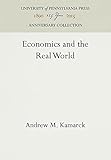Economics and the Real World / Andrew M. Kamarck.
Material type: TextSeries: Anniversary CollectionPublisher: Philadelphia : University of Pennsylvania Press, [2016]Copyright date: ©1983Edition: Reprint 2016Description: 1 online resource (180 p.)Content type:
TextSeries: Anniversary CollectionPublisher: Philadelphia : University of Pennsylvania Press, [2016]Copyright date: ©1983Edition: Reprint 2016Description: 1 online resource (180 p.)Content type: - 9780812279023
- 9781512809466
- online - DeGruyter
- Issued also in print.
| Item type | Current library | Call number | URL | Status | Notes | Barcode | |
|---|---|---|---|---|---|---|---|
 eBook
eBook
|
Biblioteca "Angelicum" Pont. Univ. S.Tommaso d'Aquino Nuvola online | online - DeGruyter (Browse shelf(Opens below)) | Online access | Not for loan (Accesso limitato) | Accesso per gli utenti autorizzati / Access for authorized users | (dgr)9781512809466 |
Browsing Biblioteca "Angelicum" Pont. Univ. S.Tommaso d'Aquino shelves, Shelving location: Nuvola online Close shelf browser (Hides shelf browser)

|

|

|

|

|

|

|
||
| online - DeGruyter The Widening Circle : Essays on the Circulation of Literature in Eighteenth-Century Europe / | online - DeGruyter The Song of Troilus : Lyric Authority in the Medieval Book / | online - DeGruyter Images of Adventure : Ywain in the Visual Arts / | online - DeGruyter Economics and the Real World / | online - DeGruyter The "Alexandreis" of Walter of Chatilon : A Twelfth-Century Epic. | online - DeGruyter The Benevolent Deity : Ebenezer Gay and the Rise of Rational Religion in New England, 1696-1787 / | online - DeGruyter An Invitation to Law and Social Science / |
Frontmatter -- Contents -- Preface -- 1. Introduction -- 2. Problems of Measurement in General -- 3. Special Sources of Inaccuracy in Economic Data -- 4. Loose Concepts and Economics -- 5. National Income and Product Accounts -- 6. Balance of Payments -- 7. Macroeconomic Models -- 8. Microeconomics -- 9. Welfare Economics and Cost - Benefit Analysis -- 10. 'Capital' and 'Investment' in Less Developed Countries -- 11. Operational Conclusions -- Technical Appendix Significant Digits -- Bibliography -- Index
restricted access online access with authorization star
http://purl.org/coar/access_right/c_16ec
Drawing on a lifetime of distinguished work in economic research and policymaking, Andrew Kamarck details how his profession can more usefully analyze and solve economic problems by changing its basic approach to research.Kamarck contends that most economists today strive for a mathematical precision in their work that neither stems from nor leads to an accurate view of economic reality. He develops elegant critiques of key areas of economic analysis based on appreciation of scientific method and knowledge of the limitations of economic data. Concepts such as employment, market, and money supply must be seen as loose, not exact. Measurement of national income becomes highly problematic when taking into account such factors as the so-called underground economy and currency differences. World trade analysis is based on inconsistent and often inaccurate measurements. Subtle realities of the individual, social, and political worlds render largely ineffective both large-scale macroeconomics models and micro models of the consumer and the firm. Fashionable cost-benefit analysis must be recognized as inherently imprecise. Capital and investment in developing countries tend to be measured in easy but irrelevant ways.Kamarck concludes with a call for economists to involve themselves in data collection, to insist on more accurate and reliable data sources, to do analysis within the context of experience, and to take a realistic, incremental approach to policymaking. Kamarck's concerns are shared by many economists, and his eloquent presentation will be essential reading for his colleagues and for those who make use of economic research.
Issued also in print.
Mode of access: Internet via World Wide Web.
In English.
Description based on online resource; title from PDF title page (publisher's Web site, viewed 30. Aug 2021)


